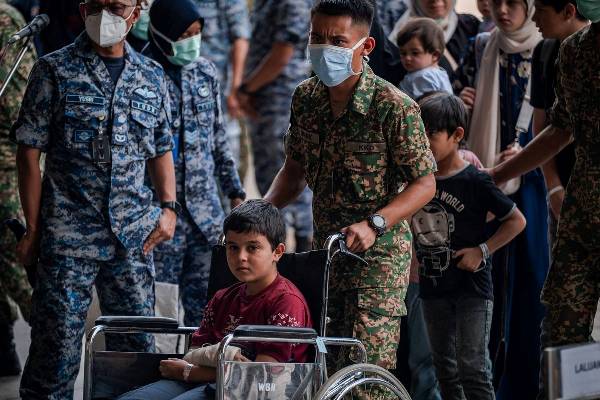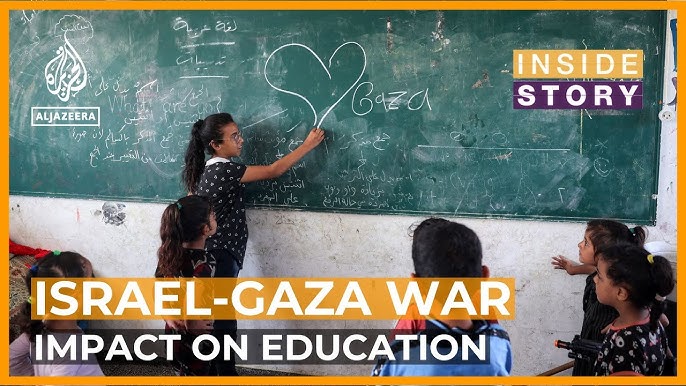Palestinian fighters in Gaza during last month's conflict killed seven men accused of collaborating with Israel.
The Hamas government says it is investigating how they were killed before they could be tried in court. Al Jazeera's Nicole Johnston reports from Gaza
– Warning –
Viewers may find the pictures in this report disturbing.
Posted December 11, 2012
Executed Gaza 'collaborators' were in custody before war
December 11, 2012 – BETHLEHEM (Ma'an) — Seven Palestinians who were accused of spying for Israel and publicly executed during the latest assault on Gaza were already in jail when the war started, and several had been held for more than a year.
Masked gunmen shot the alleged collaborators in two public attacks at the height of Israel's eight-day bombardment of Gaza, killing one person on Nov. 16 and another six people on Nov. 20.
At the time, security officials said one man had confessed to aiding Israel while the six others "were caught red-handed" and "possessed hi-tech equipment and filming equipment to take footage of positions."
A Ma'an review of publicly available records as well as interviews with experts in Gaza show that all of these men had been in the custody of the Hamas government for months and in one case years before Israel launched its "Pillar of Cloud" operation.
Ashraf Aweida, the first victim, had been held on suspicion of spying but had not been formally convicted before his body was dumped in the street outside Shifa hospital along with a note claiming he had confessed to assisting in Israeli assassinations, according to human rights activists in Gaza. The six others who were killed Nov. 20 had all been formally sentenced to death no later than September.
Palestinian human rights activists and a senior Hamas official have condemned the killings as illegal, saying the men should have been brought to justice under the law.
According to public records maintained by the Palestinian Center for Human Rights and other groups, six of the seven men had already had their day in court by the time Israel launched its assault Nov. 14.
Three of them — Amer al-Aef, Zuheir Hamouda and Ghassan Asfur — were sentenced to death in 2012. Two others, Ribhi Bedawi and Fadel Abu Shalluf, received the same sentence in 2011. The sixth victim, Naim Ashur, was convicted of treason in March 2010, according to the Independent Commission for Human Rights, the Palestinian Authority's official rights ombudsman.
"Prior to the attack on Gaza they were all in custody," said Hamdi Shakura, the director of the Palestinian Center for Human Rights' democracy development unit, in an interview.
"We have no information as to whether they were released or handed to militants. We are waiting for the results of the government committee. We are hopeful we will see a real investigation and action by the government," Shakura told Ma'an.
Images of the victims — including one showing a man's lifeless body chained to a motorcycle and being dragged throughout the streets of Gaza City — underscored the sentiment toward informants after Israel launched its brutal air assault, which killed over 170 people and injured hundreds.
Officials in Gaza also used the images to warn would-be spies against cooperating with Israel. After Aweida's body was found outside Shifa hospital, a security official cited the killing as evidence the government was not lowering its guard against "those who mess with the security of our homeland."
A week since the ceasefire, the circumstances of how these seven men were removed from their jail cells and ended up dead on Gaza City's streets remain unclear.
Taher al-Nunu, a spokesman for the Hamas government, promised a full investigation into the killings, which he described as unlawful.
However senior Hamas leader Mahmoud al-Zahhar dismissed criticism from Palestinian human rights groups.
"We will not allow one collaborator to be in Gaza, and let human rights groups say whatever they want. A human has rights if they have honor and not if they are a traitor," he said Saturday.
The remarks followed condemnation by the deputy chief of Hamas, Mousa Abu Marzouq, who said the killings were "not acceptable at all," and demanded that those responsible be held accountable.
Such an incident "must never happen again," he said.
Post Disclaimer | Support Us
Support Us
The sailanmuslim.com web site entirely supported by individual donors and well wishers. If you regularly visit this site and wish to show your appreciation, or if you wish to see further development of sailanmuslim.com, please donate us
IMPORTANT : All content hosted on sailanmuslim.com is solely for non-commercial purposes and with the permission of original copyright holders. Any other use of the hosted content, such as for financial gain, requires express approval from the copyright owners.
 Sri lanka Muslims Web Portal Sri Lanka Muslims News Center
Sri lanka Muslims Web Portal Sri Lanka Muslims News Center

 Donate
Donate


